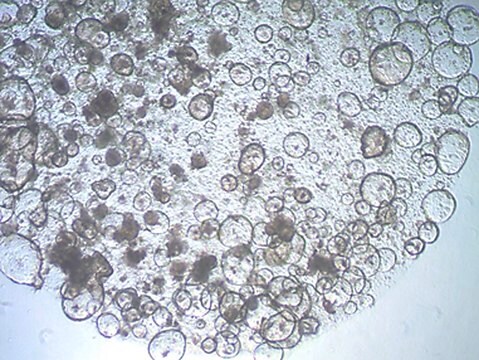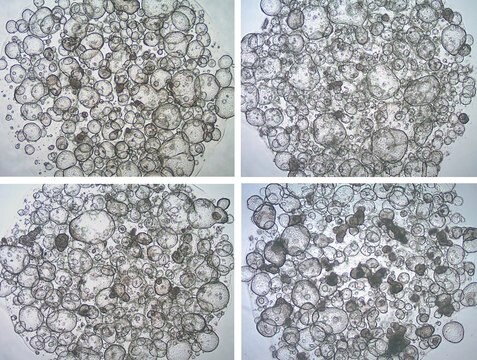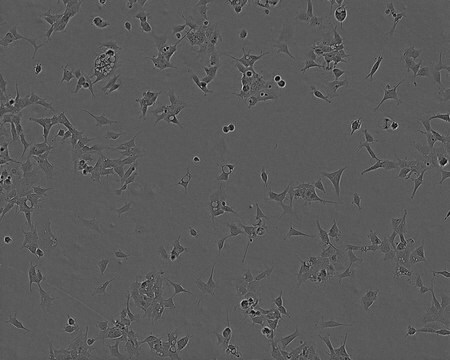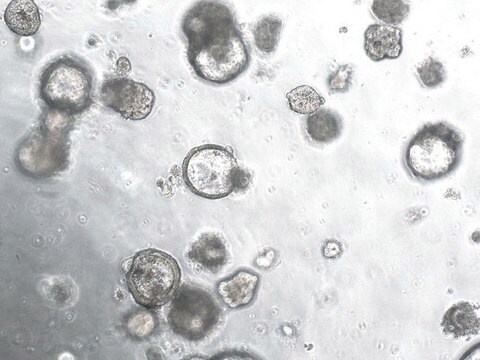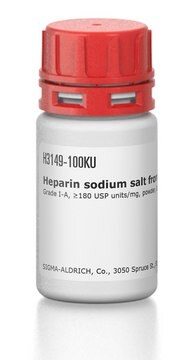SCC111
R-Spondin1 expressing 293T Cell Line
Human
Sinonimo/i:
RSPO1-expressing 293T cells
About This Item
Prodotti consigliati
product name
R-Spondin1 expressing 293T Cell Line, The R-Spondin1-Expressing 293T cell line produces RSPO1, a critical protein used to establish 3D organoid cultures from stomach, small intestine, colon, pancreas, and liver sources.
Origine biologica
human
Livello qualitativo
Condizioni di spedizione
ambient
Descrizione generale
The 293T cell line is stably transfected to express mouse R-spondin1 protein tagged with N-terminus HA epitope tag and C-terminus mouse IgG2α Fc region. R-Spondin1 expressing 293T cell line can be used to produce either purified Rspo1 or Rspo1 conditioned media. The FC region and HA tags enable ease of purification and characterization. Cell line is not the published cell line from the Kuo lab, but rather a related cell line developed in the same lab using the reference protocol.
Descrizione della linea cellulare
Applicazioni
Cell Culture
Qualità
• Cells are tested negative for HPV-16, HPV-18, Hepatitis A, B, C, Herpesvirus type 6, 7, 8 and HIV-1 & 2 viruses by PCR.
• Cells are negative for mycoplasma contamination.
• Each lot of cells is genotyped by STR analysis to verify the unique identity of the cell line.
Stoccaggio e stabilità
Esclusione di responsabilità
Codice della classe di stoccaggio
10 - Combustible liquids
Classe di pericolosità dell'acqua (WGK)
WGK 1
Punto d’infiammabilità (°F)
Not applicable
Punto d’infiammabilità (°C)
Not applicable
Certificati d'analisi (COA)
Cerca il Certificati d'analisi (COA) digitando il numero di lotto/batch corrispondente. I numeri di lotto o di batch sono stampati sull'etichetta dei prodotti dopo la parola ‘Lotto’ o ‘Batch’.
Possiedi già questo prodotto?
I documenti relativi ai prodotti acquistati recentemente sono disponibili nell’Archivio dei documenti.
I clienti hanno visto anche
Articoli
rganoid culture products to generate tissue and stem cell derived 3D brain, intestinal, gut, lung and cancer tumor organoid models.
Il team dei nostri ricercatori vanta grande esperienza in tutte le aree della ricerca quali Life Science, scienza dei materiali, sintesi chimica, cromatografia, discipline analitiche, ecc..
Contatta l'Assistenza Tecnica.